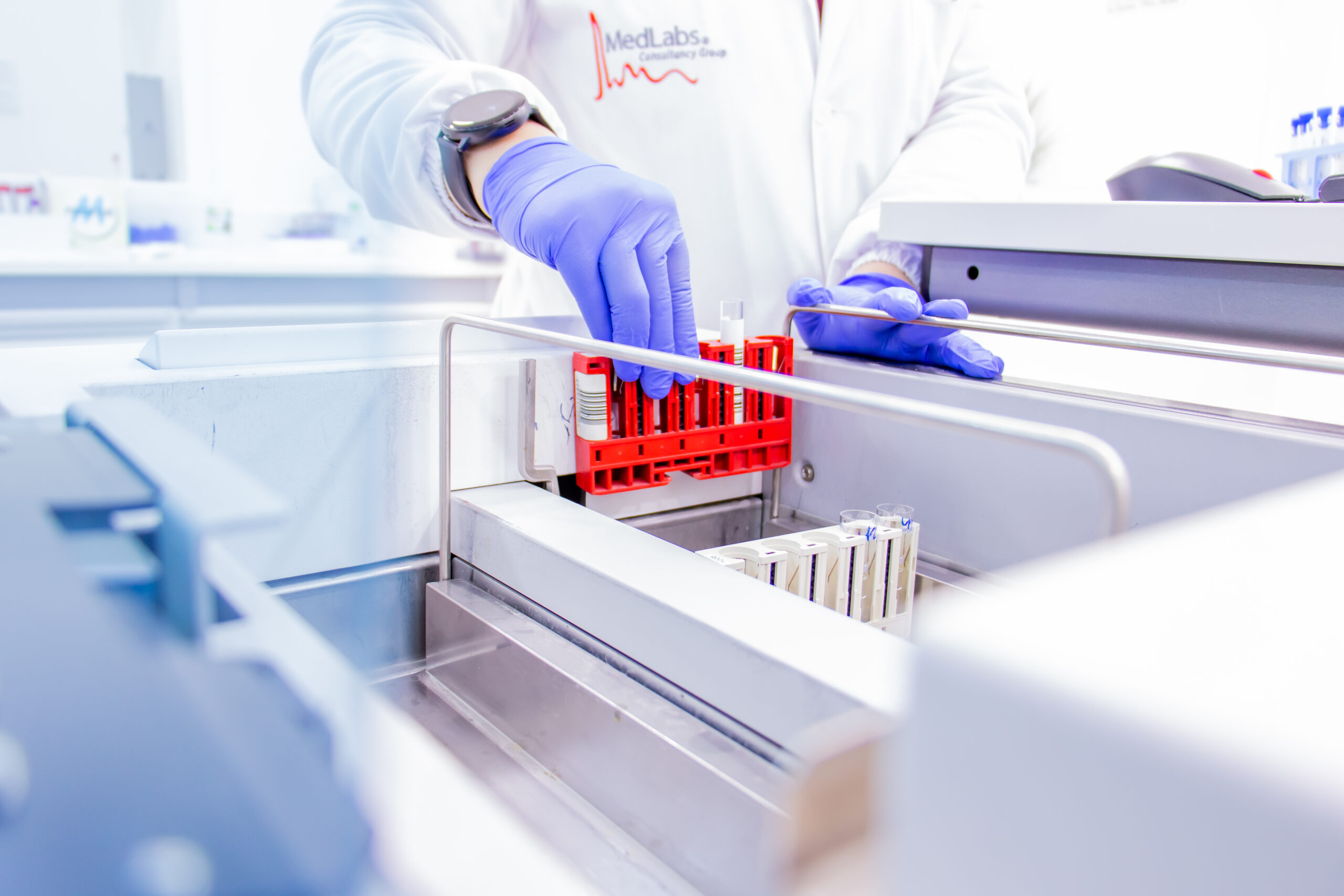
CPK Test (Creatine Phosphokinase): What It Is, Its Importance, and How to Read the Results
Creatine phosphokinase (CPK) is an enzyme found in skeletal muscle cells, along with the heart and brain tissues, in different forms. It plays an important role in energy production within cells, as it converts creatine into creatine phosphate, which can then be used for quick energy needs. However, when muscle cells are damaged, this enzyme leaks into the blood, making it an early and vital indicator of such damage. So, have you ever experienced sudden, unexplained muscle pain or cramps? A CPK test may help uncover the cause of these symptoms.
In this article, we’ll learn about this test and its clinical significance in diagnosing different medical conditions.
What is the CPK Test?
The CPK test is a laboratory analysis used to measure the level of creatine phosphokinase enzyme in the blood, originating from the muscles, brain, and heart; that’s why it is sometimes referred to as the muscle test. The enzyme level rises when there is damage or stress in these tissues; therefore, the test is used to help diagnose conditions such as heart attack, muscle injuries, inflammation, or certain neuromuscular diseases. Conversely, a low CPK level usually has no significant clinical importance.
Importance of the CPK Test
This test is typically ordered when a heart attack is suspected, when muscle pain or weakness cannot be explained, in cases of muscular dystrophy or myositis, after serious injuries or accidents that may cause muscle breakdown, or following certain brain disorders or head trauma. It is also used to monitor patients with heart or muscle conditions during treatment to assess their recovery.
Its importance lies in being an early and accurate marker of damage to vital tissues in the body. It also helps in following up on the patient’s condition after treatment or surgery and assists in distinguishing between different causes of muscle pain and weakness.
In a special case, this test is requested for patients with rhabdomyolysis as a marker to monitor acute renal failure. Patients with this condition suffer from the destruction or breakdown of skeletal muscle fibers, leading to the leakage of both CPK and myoglobin. While CPK itself is not considered harmful to the kidneys, the myoglobin protein released from damaged cells can worsen kidney injury. Therefore, CPK is regarded as an indirect marker for monitoring kidney damage.
Types of Creatine Phosphokinase (CPK) and Their Roles
There are three types of this enzyme, or “isoenzymes”, each found in specific tissues and serving a particular role. Doctors can determine the source of tissue damage based on which isoenzyme is elevated in the test.
-
CPK-MM (Skeletal Muscles)
Found mainly in skeletal muscles. Its elevation usually indicates muscle injuries or inflammation, or cases of severe muscle strain.
-
CPK-MB (Heart Muscle)
Found in the heart muscle. It is an important marker for diagnosing heart attacks or other cardiac problems.
-
CPK-BB (Brain and Nervous Tissue)
Found in the brain and nervous tissue. Although rarely requested, its elevation may indicate brain injuries or certain neurological tumors.
How to Prepare for a CPK Test
Preparing for a CPK test is straightforward and doesn’t require complex steps. Fasting is not necessary, and the test can be done at any time of day. However, it is best to avoid intense physical exercise or heavy muscle exertion for 24 hours prior to the test, since this may temporarily raise CPK levels in the blood. You should also inform your doctor if you have recently received intramuscular injections, had muscle injuries, or are taking medications such as cholesterol-lowering drugs (statins), certain antibiotics, or pain relievers, as these may affect the results.
How to Interpret CPK Test Results
The interpretation of CPK test results depends on the numerical value shown in the analysis and comparing it with the reference ranges (which may vary slightly from one laboratory to another). Normal values are usually between 20 and 200 U/L, but they may differ depending on age and gender.
-
Causes of High CPK
- Heart-related causes
- Heart attack (especially elevated CPK-MB).
- Myocarditis or heart failure.
- Muscle-related causes
- Intense exercise or muscle injuries.
- Accidents, fractures, or surgery.
- Myositis or hereditary conditions such as muscular dystrophy.
- Rhabdomyolysis (severe and rapid muscle breakdown).
- Intramuscular injections.
- Certain medications (e.g., cholesterol-lowering drugs “statins”).
- Severe seizures or convulsions.
- Brain inflammation or tumors (especially elevated CPK-BB).
-
Causes of Low CPK
- Low muscle mass is typically associated with the elderly or cases of severe malnutrition.
- Chronic liver disease may reduce the production of certain enzymes.
- Pregnancy: levels may naturally decrease slightly.
- Hyperthyroidism can sometimes lead to reduced CPK levels.
FAQ
What does high CPK in the blood mean?
High levels of CPK (Creatine Phosphokinase) in the blood usually indicate muscle damage. This may come from the heart (such as a heart attack or myocarditis), the skeletal muscles (due to injury, strenuous exercise, or conditions like muscular dystrophy), or, less commonly, the brain (from trauma or neurological disease). A temporary rise can also occur after intramuscular injections or seizures. Doctors interpret the results alongside symptoms and other tests to determine the exact cause.
How is a CPK test performed?
The CPK test is a simple blood test. A healthcare professional inserts a small needle into a vein in your arm and collects a blood sample. The sample is then sent to the lab, where the level of the enzyme is measured. No fasting is required, but you may be advised to avoid heavy exercise the day before the test, since it can temporarily raise CPK levels.
Are there any risks associated with the CPK test?
No, the CPK test is considered safe and routine. It carries the same minimal risks as any standard blood draw, such as slight pain, minor bruising, or a small chance of dizziness at the needle site. These effects are usually mild and resolve quickly.
Can we help you?







